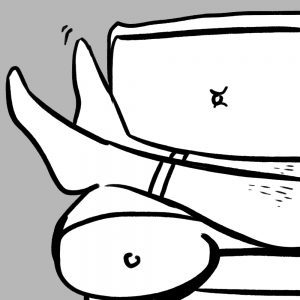Drawing parallels between self-care and retirement
March 30, 2017

If you haven’t heard by now, social security is expected to fizzle out partially, if not entirely, by the year 2034. My solution: self-care. But what could I possibly mean by bringing in a practice popularized through social and mass media into the world of finance?
The outlined possibilities that social security can take are devastating to the traditional notion of the retirement plan. Despite being mere projections that do not incorporate all that could happen, the threat has taken hold. Multiple business publications are addressing financial steps millennials can take now to prepare for a traditional retirement.
While I am not saying that self-care should replace these financial options, I do think that this advice will not be enough. Instead, I propose that in addition to financial literacy we, as a society, need to re-envision the concept of retirement itself.
A lot has been written on how millenials approach work differently than previous generations. In an article for Lifehack, Dianna Labrien addressed how millennials value jobs in which their passions are prevalent in their work. For the most part, these jobs are more ingrained in the individual’s lifestyle, rather than separate. With this sort of work ethic I find it hard to believe that millennials would want to find fulfilling jobs only to work towards retirement.
Knowing the way millennials approach their work and the unreliability of social security, traditional retirement seems not only unfeasible but undesirable. So, instead of working for all your life in order for a break that might not be guaranteed, why not incorporate a practice that posits taking tiny breaks as a lifestyle?
This is where self-care, which emphasizes a concept of rest similar to retirement, comes in. For instance, both allot time to maintain and reward the self. Whereas retirement comes at the end of a lifetime of hard work, self-care is interspersed on a day-to-day, if not weekly, basis. As such, self-care is a practice prevalent whether one achieves a career milestone or not. On the other hand, retirement is a lifestyle only achieved as a reward at the end of one’s career.
I know how lazy and undeserving self-care must sound. I could talk about the economical benefits of self-care–specifically how a balanced lifestyle that promotes mental and physical health increases employee productivity. But that would be fitting it neatly into capitalistic productivity.
Retirement rewards capitalistic productivity after a lifetime of servitude. On the other hand, self-care as an ideology does not depend on how much work you get done in your lifetime. Yeah, some people treat themselves after a long week at work but self-care operates outside of rewards as well. For instance, self-care promotes the practice of taking care of the self despite capitalistic performance. As a result, self-care as an emerging movement seeks to break the feedback and response relationship between capitalistic productivity and caring for the self.
I can hear the baby boomers saying: lazy millennials! They want to be rewarded for doing nothing? But this departure from a capitalistic reward mindset is anything but lazy.
It’s difficult to fight the urge to scold yourself for watching “Parks and Recreation” after a tiring day instead of doing homework. Or to do nice things for ourselves wether or not you reach capitalistic milestone. This is mainly because we live in a capitalist society that instills in our mindsets from an early age that you are only as worthy as how productive you are (no surprise there). As such, although self-care may seem lazy on the outset, it demands you jump mental gymnastic hoops in order to re-train how treat you treat yourself in a capitalistic society.
So self-care on, if not because it would be a secure option while preparing for retirement, but also to resist the system.






Steve Hankin • Apr 1, 2017 at 1:48 pm
Responding only to your opening words:
“If you haven’t heard by now, social security is expected to fizzle out partially, if not entirely, by the year 2034.”
I make no claim to expertise on the Social Security Trust fund, but the basics are simple, and this statement very far from accurate. Every year money flows into the Trust Fund from Social Security taxes, and out of it as payments to older and disabled Americans. If more flows in that out, the fund grows. If more flows out than in, it diminishes. The fund, itself, however, is in a sense merely a number on an accounting ledger. At the current time the Trust Fund ledger is on the order of $2.5 trillion dollars in the black.
It is in the hands of Congress to keep the Social Security system operating smoothly. If Congress makes no changes to current tax laws or eligibility rules, then as of 2034, the ledger will stand at zero. Congress can prevent that from happening with an action as small and simple as eliminating the cap on social security taxes — i.e. affecting only individual income above $118,500 per year. Or if no action is taken, then Congress can decide to let the program continue indefinitely after 2034 with the ledger running red instead of black. Or Congress can shut down the program at any time if the politics shift in that direction. The fate of Social Security has always been in the hands of Congress. It is a matter of national will — not accounting or economics — what happens after 2034.